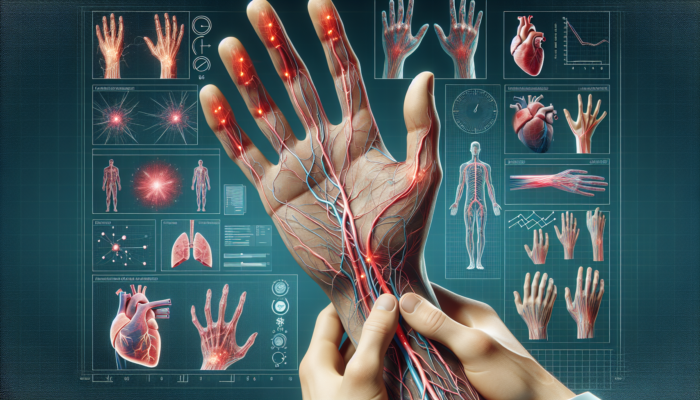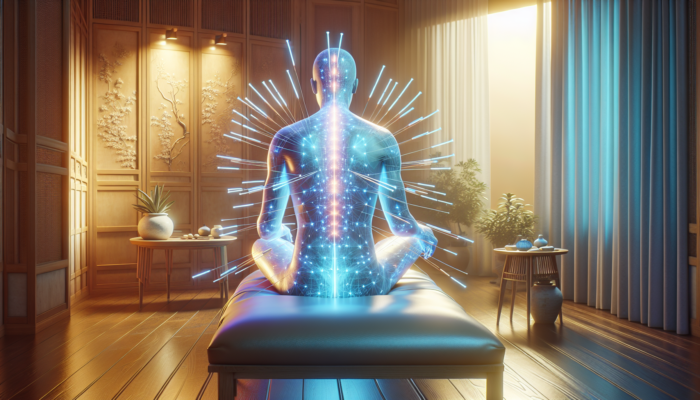Achieve Comprehensive Neuropathy Relief Through Acupuncture: Your Ultimate Guide to Healing
Understanding the Impact of Neuropathy: How Nerve Damage Disrupts Everyday Life

Neuropathy relief refers to a collection of conditions that can drastically impact nerve health and overall functionality, leading to distressing symptoms that can be debilitating for many individuals. This term broadly captures the damage or dysfunction of the peripheral nerves, which can stem from various causes such as diabetes, chemotherapy side effects, or physical trauma. Those living with neuropathy frequently report sensations including tingling, burning sensations, numbness, and sharp pain, particularly in their limbs. These distressing sensations can significantly hinder daily activities, making even the simplest tasks feel overwhelmingly challenging and daunting.
Understanding the various manifestations of neuropathy is essential, as its effects can vary widely among individuals. For some, it may manifest as mild discomfort, while others endure relentless pain that disrupts sleep and interferes with everyday routines. The origins of neuropathy are diverse and often complex, necessitating a comprehensive and multifaceted treatment approach. As we examine the numerous benefits of acupuncture for neuropathy relief, it is crucial to grasp the intricate nature of this condition and explore the holistic strategies available for effective management.
Acupuncture Explained: A Holistic Approach to Healing and Pain Relief
Acupuncture serves as a foundational aspect of traditional Chinese medicine, rooted in the belief that vital energy, known as “Qi,” flows through designated pathways in the body called meridians. When this energy encounters blockages or imbalances, it can lead to pain and functional impairments. By strategically placing fine needles into specific points along these meridians, acupuncture aims to restore balance and activate the body's innate healing processes.
This ancient practice transcends mere pain management; it actively supports the body's natural restorative capabilities. The stimulation of targeted acupoints enhances blood circulation, reduces inflammation, and encourages the release of endogenous opioids—the body's natural pain-relieving agents. This intricate interaction between physical and mental states fosters a calming and often transformative experience for patients. Many individuals who undergo acupuncture for neuropathy relief find that these sessions not only alleviate their physical discomfort but also promote a profound sense of holistic well-being and relaxation.
Scientific Evidence: Validating Acupuncture's Role in Neuropathy Management
A substantial body of research has examined the efficacy of acupuncture in treating neuropathy, yielding promising results. Numerous studies have shown that acupuncture can lead to significant reductions in neuropathic pain, with some research indicating that patients may experience lasting relief even after completing their treatment regimens.
For instance, a notable study published in a respected medical journal reported that individuals suffering from diabetic neuropathy experienced considerable improvements following a series of acupuncture sessions. These findings suggest that acupuncture not only alleviates pain but also enhances nerve function and encourages regeneration.
The medical field is increasingly recognizing the potential of acupuncture as a complementary therapy for neuropathy. Its ability to diminish reliance on pharmaceutical treatments—which often come with adverse side effects—positions acupuncture as an attractive alternative for those seeking relief. As we further explore the advantages of acupuncture for neuropathy relief, it is essential to consider both anecdotal experiences and the growing body of scientific evidence supporting its effectiveness.
Discover the Transformative Benefits of Acupuncture for Neuropathy Relief

Achieving Effective Pain Management Through Acupuncture Therapy
One of the most significant advantages of acupuncture for neuropathy relief is its remarkable ability to alleviate pain. Neuropathic pain can be especially challenging to manage, often resisting traditional treatment methods. However, acupuncture offers a holistic approach that tackles the root causes of discomfort rather than merely masking symptoms.
Clinical trials consistently show that patients who undergo acupuncture report a noticeable decrease in pain levels, largely due to the release of endogenous opioids and other neurochemicals triggered during the treatment process. Furthermore, acupuncture can alleviate inflammation—a common contributor to pain—by enhancing blood flow to the affected areas, promoting healing and comfort.
For many individuals, the reduction in pain is often coupled with a profound sense of relaxation and emotional uplift. This makes acupuncture more than just a physical remedy; it becomes a holistic healing experience. Patients frequently share that after their sessions, they experience a serene calmness that significantly enhances their overall quality of life. The proven effectiveness of acupuncture in managing pain solidifies its importance as a key element of any comprehensive neuropathy relief plan.
Enhancing Nerve Function and Promoting Regeneration Through Acupuncture
Beyond mere pain relief, acupuncture has shown promising potential in improving overall nerve function. Neuropathy often leads to decreased nerve activity, exacerbating symptoms such as numbness and tingling. By stimulating specific acupoints, acupuncture encourages nerve regeneration and fosters effective communication between nerves and muscles.
Research suggests that acupuncture can elevate the production of nerve growth factor (NGF), a crucial protein responsible for the growth, maintenance, and survival of nerve cells. This biochemical response aids in the recovery of damaged nerves, ultimately enhancing sensory perception and motor function.
Patients receiving acupuncture for neuropathy relief often report increased sensitivity and awareness in their extremities. This improvement significantly enhances their ability to engage in daily activities while alleviating feelings of isolation commonly associated with neuropathy. By restoring nerve function, acupuncture not only alleviates discomfort but also empowers individuals to reclaim their lives.
Experience Low-Risk Treatment with Minimal Side Effects Compared to Conventional Therapies

When contemplating treatment options for neuropathy, the possibility of side effects often weighs heavily on patients' minds. Unlike many conventional medications that can produce a myriad of unwanted effects, acupuncture is generally well-tolerated and associated with minimal side effects.
Most patients may experience slight soreness or a temporary increase in symptoms following their initial sessions, but these sensations are typically fleeting. This gentle approach to treatment is particularly appealing for individuals who may feel apprehensive about the side effects associated with pharmaceuticals or invasive procedures.
Moreover, acupuncture is a non-invasive therapy that stimulates the body’s natural healing processes. This characteristic makes it a safe alternative for those who may not be suitable candidates for more aggressive treatments. As you consider acupuncture for neuropathy relief, knowing that it represents a low-risk option with the potential for significant benefits can enhance your confidence in your treatment choices.
Effective Techniques and Applications of Acupuncture for Neuropathy Relief
Selecting Targeted Acupoints for Maximum Effectiveness
The effectiveness of acupuncture for neuropathy relief is heavily influenced by the careful selection of appropriate acupoints. Each acupoint corresponds to specific symptoms and underlying causes, making it critical to choose them wisely to attain the best outcomes.
Commonly utilized acupoints for neuropathy include LI4 (Hegu), ST36 (Zusanli), and SP6 (Sanyinjiao), among others. LI4, located between the thumb and index finger, is renowned for its pain-relieving properties. ST36, found on the lower leg, enhances overall vitality and bolsters the immune system. SP6, located on the inside of the lower leg, is particularly effective for alleviating discomfort in the lower body.
Choosing the right acupoints requires a comprehensive understanding of the individual’s symptoms and medical history. An experienced acupuncturist will conduct a thorough assessment to formulate a customized treatment plan. Personalization is crucial for success, and identifying the optimal combination of acupoints can yield remarkable relief and significantly improve quality of life.
Establishing Treatment Frequency and Duration for Optimal Results
Determining the frequency and duration of acupuncture sessions is vital for maximizing treatment benefits. While individual needs may vary, a common recommendation is to initiate therapy with weekly sessions for four to six weeks. This regular schedule allows the body to adapt and respond effectively to treatment.
As patients begin to notice improvements, the frequency of their sessions may be adjusted to bi-weekly or monthly treatments, depending on symptom severity and individual response. Each session typically lasts between 30 to 60 minutes, providing adequate time for the practitioner to evaluate progress and make any necessary adjustments to the treatment plan.
Consistency is key to achieving neuropathy relief through acupuncture. Regular sessions reinforce the treatment benefits and foster a therapeutic relationship between the patient and practitioner, ultimately enhancing the overall experience and outcomes.
Integrating Acupuncture with Complementary Therapies for Enhanced Effectiveness
Combining acupuncture with other therapeutic modalities can significantly amplify its effectiveness in managing neuropathy. Many patients find that integrating acupuncture with physical therapy, massage, or dietary modifications leads to more comprehensive and satisfying results.
For example, physical therapy can focus on improving mobility and strength, while acupuncture addresses pain relief and nerve function improvement. This multifaceted approach enables patients to tackle their symptoms from different angles, resulting in a more holistic healing experience.
Lifestyle adjustments, such as adopting a nerve-friendly diet rich in antioxidants and omega-3 fatty acids, can also complement acupuncture treatments. These dietary changes promote nerve health and support the body’s natural healing mechanisms.
As you embark on your journey toward neuropathy relief, consider discussing integrative options with your acupuncturist. A collaborative approach can lead to transformative results, empowering you to take charge of your health and well-being.
Transformative Case Studies: How Acupuncture Changes Lives
Case Study: Triumph Over Diabetic Neuropathy
A compelling case study illustrates the experience of a patient afflicted by diabetic neuropathy. After years of enduring chronic pain and discomfort in her feet, she opted to try acupuncture as a last resort. Initially hesitant, she committed to weekly sessions lasting approximately 45 minutes.
Throughout her treatment, she witnessed a significant reduction in pain levels and improved overall mobility. The tingling and numbness that had previously dominated her daily life began to dissipate, allowing her to engage in activities she had long abandoned. By the conclusion of her treatment plan, she reported feeling revitalized and more in control of her health.
This success story serves as a powerful testament to how acupuncture for neuropathy relief can dramatically enhance one's quality of life, highlighting the potential for healing that extends beyond conventional treatments.
Case Study: Recovery from Chemotherapy-Induced Neuropathy
Another inspiring account features a patient who developed neuropathy following chemotherapy for breast cancer. Struggling with debilitating pain and heightened sensitivity in her hands and feet, she sought the expertise of an acupuncturist to alleviate her distressing symptoms.
Following a thorough evaluation, her practitioner crafted a personalized treatment plan focusing on acupoints known to effectively manage nerve pain. With each session, she began to experience relief from the sharp, burning sensations that had previously rendered daily tasks unbearable. Over several weeks, her symptoms significantly improved, enabling her to return to her passion for painting—a goal that had once seemed unattainable.
This narrative poignantly illustrates the resilience of the human spirit and the potential for acupuncture to provide comfort and healing for those confronting the repercussions of severe medical treatments.
Patient Testimonials: The Life-Altering Impact of Acupuncture
Numerous patients share experiences that reflect the positive influence of acupuncture in their lives. Many express heartfelt testimonials about how this ancient practice has reshaped their approach to managing neuropathy. One patient shared, “I never thought I could find relief without medication, but acupuncture has changed everything for me. I feel like I have my life back.”
Another individual stated, “The pain used to dictate my life, but after just a few sessions, I regained my independence. Acupuncture has been a true blessing.” These accounts highlight the transformative potential of acupuncture, not merely as a treatment but as a pathway to reclaiming one’s life from the burdens of neuropathy.
As we continue to explore the realm of acupuncture for neuropathy relief, it is essential to recognize the real-life implications and successes that accompany this practice, inspiring hope for those still seeking effective solutions.
Addressing Common Concerns: Your Questions About Acupuncture for Neuropathy Relief
Assessing the Safety of Acupuncture as a Neuropathy Treatment Alternative
Safety often emerges as a primary concern for individuals considering acupuncture as a treatment option for neuropathy. Generally, acupuncture is regarded as safe when performed by a qualified and licensed practitioner. The use of sterile, single-use needles significantly reduces the risk of infection, and adverse effects are relatively uncommon.
Patients might experience mild discomfort or bruising at the needle insertion sites, but these sensations typically resolve quickly. It is crucial for patients to share their complete medical history with their acupuncturist, ensuring a safe and personalized approach to their treatment. By understanding the safety profile of acupuncture for neuropathy relief, individuals can approach therapy with confidence and peace of mind.
What to Expect During Your First Acupuncture Session
Understanding what to anticipate during an acupuncture session can help alleviate anxiety for those unfamiliar with the process. Upon arrival, the acupuncturist will conduct a comprehensive consultation, discussing your medical history, symptoms, and treatment goals. This dialogue is essential for developing a tailored treatment plan that addresses your unique needs.
During the session, patients will lie comfortably while the practitioner inserts fine needles into specific acupoints. While some individuals may feel a slight pinch or a tingling sensation, many report experiencing a profound sense of relaxation as the session progresses. Sessions typically last between 30 to 60 minutes, during which the practitioner may also incorporate additional techniques such as heat or electrical stimulation to enhance the therapeutic effects.
Understanding the process can demystify acupuncture for neuropathy relief, encouraging individuals to embrace the experience with an open mind and heart.
Financial Considerations: Understanding Costs and Insurance Coverage for Acupuncture
Navigating the financial aspects of acupuncture treatment can often feel overwhelming. Costs can vary significantly based on the practitioner’s experience, geographic location, and session duration. Many acupuncturists offer package deals that make treatment more financially accessible for patients.
Regarding insurance coverage, some plans include acupuncture as a complementary therapy. It is advisable to consult with your insurance provider to understand the specifics of your coverage. Additionally, many clinics provide sliding scale fees for those without insurance, accommodating various budgets.
As you consider acupuncture for neuropathy relief, being informed about costs and potential insurance benefits can empower you to make educated decisions regarding your treatment options.
Comparing Acupuncture with Alternative Treatment Options for Neuropathy
Comparing Acupuncture with Conventional Medications for Neuropathy Management
When exploring treatments for neuropathy, it is essential to assess the advantages and disadvantages of acupuncture compared to traditional medications. While medications such as antidepressants and anticonvulsants can provide relief, they often come with side effects like dizziness, weight gain, and fatigue.
In contrast, acupuncture for neuropathy relief typically presents minimal side effects, making it a gentler alternative. Many patients discover that acupuncture not only alleviates pain but also improves their overall well-being, reducing their reliance on pharmaceuticals.
Although both approaches have their benefits, the choice of treatment ultimately depends on the individual’s circumstances. Engaging in a thorough discussion with a healthcare provider can help determine the most suitable strategy for effectively managing neuropathy symptoms.
Combining Acupuncture and Physical Therapy: Complementary Approaches to Neuropathy Management
Both acupuncture and physical therapy play vital roles in managing neuropathy, albeit through different methodologies. Physical therapy focuses on strengthening muscles, enhancing mobility, and improving functional abilities through structured exercises.
Conversely, acupuncture for neuropathy relief addresses underlying pain and nerve function through energy balancing and stimulation. Many patients discover that integrating both therapies yields optimal results, enabling them to address both the symptoms and functional limitations associated with neuropathy.
The fusion of acupuncture and physical therapy can enrich the overall treatment experience, offering a holistic approach to recovery and symptom management.
When to Consider Acupuncture Over Surgical Options for Neuropathy
In more severe instances of neuropathy, surgical options may be contemplated. However, surgery often carries risks, including complications and prolonged recovery periods. In contrast, acupuncture provides a non-invasive alternative that can be explored before considering surgical solutions.
For many patients, opting for acupuncture for neuropathy relief can lead to significant improvements without the need for surgical intervention. It is crucial to discuss all available options with a healthcare provider, carefully weighing the benefits and potential risks of each approach to formulate the most appropriate treatment plan.
The Future of Acupuncture in Neuropathy Relief: Emerging Trends and Research
Innovative Advancements in Acupuncture Technology
The field of acupuncture is constantly evolving, with technological innovations enhancing treatment outcomes. New tools such as electro-acupuncture devices and laser acupuncture are gaining popularity, providing patients with alternative methods for attaining relief.
Electro-acupuncture involves applying mild electrical currents to acupuncture needles, amplifying stimulation and facilitating deeper, more profound effects. This approach has proven particularly effective for neuropathic pain, offering patients expedited relief.
As technology continues to advance, the landscape of acupuncture for neuropathy relief is expected to broaden, revealing new possibilities for treatment and enriching the patient experience.
Recent Research Findings on Acupuncture and Neuropathy Management
The expanding body of research surrounding acupuncture consistently validates its efficacy in treating neuropathy. Recent studies highlight the positive effects of acupuncture on pain management, nerve regeneration, and overall quality of life for individuals affected by neuropathy.
Ongoing research not only reinforces acupuncture's credibility as a legitimate treatment option but also contributes to a deeper understanding of the mechanisms driving its success. As more healthcare providers acknowledge these findings, the integration of acupuncture into mainstream treatment regimens is anticipated to grow.
The future of acupuncture for neuropathy relief appears promising, with research paving the way for broader acceptance and implementation in clinical environments.
The Role of Acupuncture in Comprehensive Neuropathy Management
As the healthcare landscape shifts towards a more holistic approach, acupuncture is increasingly recognized as a valuable component of comprehensive neuropathy management. By addressing both physical and emotional dimensions of the condition, acupuncture can significantly enhance overall wellness.
Incorporating acupuncture alongside lifestyle modifications, dietary improvements, and other complementary therapies creates a balanced treatment plan that addresses the multifaceted nature of neuropathy. This holistic methodology empowers patients to take control of their health, fostering a sense of agency and supporting long-term well-being.
As we envision the future, the role of acupuncture in neuropathy relief will undoubtedly continue to evolve, offering hope and healing to those in need.
Selecting the Right Acupuncturist for Effective Neuropathy Relief
Key Factors for Choosing a Qualified Acupuncturist
Making the right choice in selecting an acupuncturist is crucial in your quest for neuropathy relief. It is essential to seek licensed professionals who have completed accredited training programs, ensuring they possess the requisite knowledge and expertise to deliver safe and effective treatment.
Additionally, consider their level of experience, particularly in managing neuropathy. A practitioner with a successful history of treating similar conditions will be better positioned to customize a treatment plan tailored to your specific needs. Personal recommendations and online reviews can also guide your search, helping you find a practitioner who aligns with your preferences.
Essential Questions to Discuss with Your Acupuncturist for Optimal Care
Before embarking on your acupuncture journey, it is wise to prepare questions for your practitioner. Inquire about their experience with neuropathy and their treatment philosophy. Understanding their approach can help ensure that their methods align with your expectations and health goals.
Ask about the anticipated duration and frequency of sessions, as well as what to expect during your treatment. Discuss any concerns you may have regarding safety and potential side effects. A knowledgeable acupuncturist will be more than willing to address your questions, providing reassurance and clarity throughout your treatment process.
This open dialogue is vital for establishing a strong therapeutic relationship, laying the groundwork for successful outcomes in your neuropathy relief journey.
Evaluating Acupuncture Clinics: Key Factors for Quality Care
Identifying the right acupuncture clinic can significantly impact your treatment experience. Look for clinics that prioritize cleanliness and comfort, fostering a welcoming atmosphere for patients.
Consider the clinic's overall philosophy and the practitioner’s approach to treatment. A clinic that encourages open communication and values patient feedback is likely to provide a more positive experience.
Take time to read reviews and testimonials to gauge the experiences of other patients. This insight can help you identify clinics with a proven track record of success in treating neuropathy. Ultimately, your comfort and trust in the clinic will be crucial to your healing process.
Supporting Neuropathy Management Through Lifestyle and Dietary Changes
Nourishing Your Body: The Role of Nutrition in Neuropathy Management
Diet plays a pivotal role in managing neuropathy symptoms and promoting overall nerve health. A diet rich in antioxidants, vitamins, and essential fatty acids can nourish the nervous system and enhance the effectiveness of acupuncture for neuropathy relief.
Incorporating foods high in omega-3 fatty acids, such as fatty fish, flaxseeds, and walnuts, can help mitigate inflammation. Additionally, antioxidants found in colorful fruits and vegetables bolster the body’s ability to combat oxidative stress, which is frequently linked to nerve damage.
Consider collaborating with a nutritionist to develop a dietary plan that complements your acupuncture treatments, ensuring you provide your body with the essential nutrients required to support nerve health and facilitate recovery.
The Importance of Regular Exercise in Neuropathy Management
Engaging in consistent physical activity is another vital component of neuropathy management. Exercise can enhance circulation, strengthen muscles, and improve mood, all contributing to better nerve function.
Low-impact activities such as walking, swimming, or yoga can be particularly beneficial for individuals with neuropathy. These forms of exercise promote blood flow without placing excessive strain on the body.
Integrating exercise with acupuncture for neuropathy relief can yield substantial benefits, as both strategies work together to enhance overall health and well-being.
Implementing Effective Stress Management Techniques for Improved Neuropathy Outcomes
Chronic stress can exacerbate neuropathy symptoms, making stress management techniques essential for effective treatment. Incorporating relaxation practices such as meditation, deep breathing exercises, and mindfulness can help relieve tension and foster a sense of tranquility.
Consider exploring stress-reduction techniques alongside your acupuncture sessions. Many patients find that a holistic approach to managing their emotional well-being complements their physical treatments, enhancing their overall outcomes in the neuropathy relief journey.
Frequently Asked Questions About Acupuncture and Neuropathy Relief
What is acupuncture and how does it function?
Acupuncture is a traditional Chinese medicine practice that involves inserting thin needles into specific points on the body to promote healing, balance, and pain relief.
How does acupuncture assist with neuropathy?
Acupuncture alleviates neuropathic pain, enhances nerve function, and improves overall well-being by stimulating the body's natural healing processes.
Is acupuncture a safe treatment option for everyone?
While it is generally considered safe, acupuncture may not be suitable for individuals with certain medical conditions. It is essential to consult with a healthcare provider before starting treatment.
How many acupuncture sessions are typically necessary for neuropathy relief?
The number of sessions varies for each individual; however, many patients benefit from weekly sessions for four to six weeks, followed by maintenance treatments.
Can acupuncture replace medications for neuropathy?
Acupuncture can complement or potentially reduce the need for medication, but it is crucial to consult with a healthcare provider before altering your treatment plan.
What can I expect during an acupuncture session?
A licensed acupuncturist will insert thin needles into specific acupoints during the session. Most patients experience minimal discomfort and often feel relaxed throughout the treatment.
Are there any side effects associated with acupuncture?
Side effects are rare but may include mild soreness, bruising, or temporary increases in symptoms. These effects typically resolve quickly.
How can I locate a qualified acupuncturist?
Look for a licensed acupuncturist with experience in treating neuropathy. Personal recommendations and online reviews can also aid in your search.
Is it possible to combine acupuncture with other therapies?
Yes, acupuncture can be effectively combined with other therapies such as physical therapy, medications, and lifestyle changes for a comprehensive approach to neuropathy.
What lifestyle changes can support my neuropathy management?
Integrating a nerve-healthy diet, regular exercise, and effective stress management techniques can enhance the effectiveness of acupuncture in managing neuropathy symptoms.
Connect with us on Facebook!
The Article: Neuropathy Relief Through Acupuncture: A Complete Guide appeared first on https://mcrtherapies.co.uk
The Article Acupuncture for Neuropathy Relief: Your Essential Guide appeared first on https://mcrtherapies.com
The Article Neuropathy Relief: Essential Guide to Acupuncture Benefits Was Found On https://limitsofstrategy.com

I can totally relate to what you’ve shared about neuropathy and its impact on daily life. I had a family member struggle with similar issues after chemotherapy, and it was heartbreaking to see how something as simple as a walk in the park became a daunting challenge.